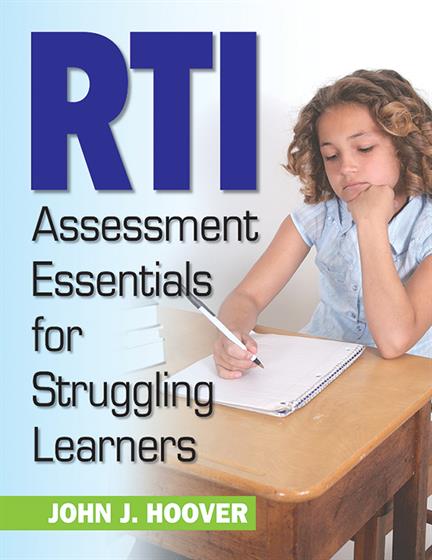Hands-on, Practical Guidance for Educators
From math,
literacy, science, equity, multilingual learners, and SEL, to assessment, school counseling,
and education leadership, our books are research-based and authored by experts
on topics most relevant to what educators are facing today.

RTI Assessment Essentials for Struggling Learners
By:
John Hoover
Assess students accurately to make informed instructional and eligibility decisions!
This resource presents a comprehensive overview of three primary types of assessment for struggling students within multitiered Response to Intervention (RTI) models: universal screening, progress monitoring, and diagnostic assessment. The book establishes the foundation for assessment in RTI and:
- Provides practical suggestions for implementing universal screening and progress monitoring to make informed instructional decisions
- Identifies the role of RTI in determining student eligibility for special education services
- Discusses effective assessment decision-making processes, including roles and responsibilities of team members
- Presents RTI assessment needs of culturally and linguistically diverse learners
Product Details
- Grade Level: K-12
- ISBN: 9781412969543
- Published By: Corwin
- Year: 2009
- Page Count: 200
- Publication date: June 15, 2012
Review Copies
This book is not available as a review copy.

